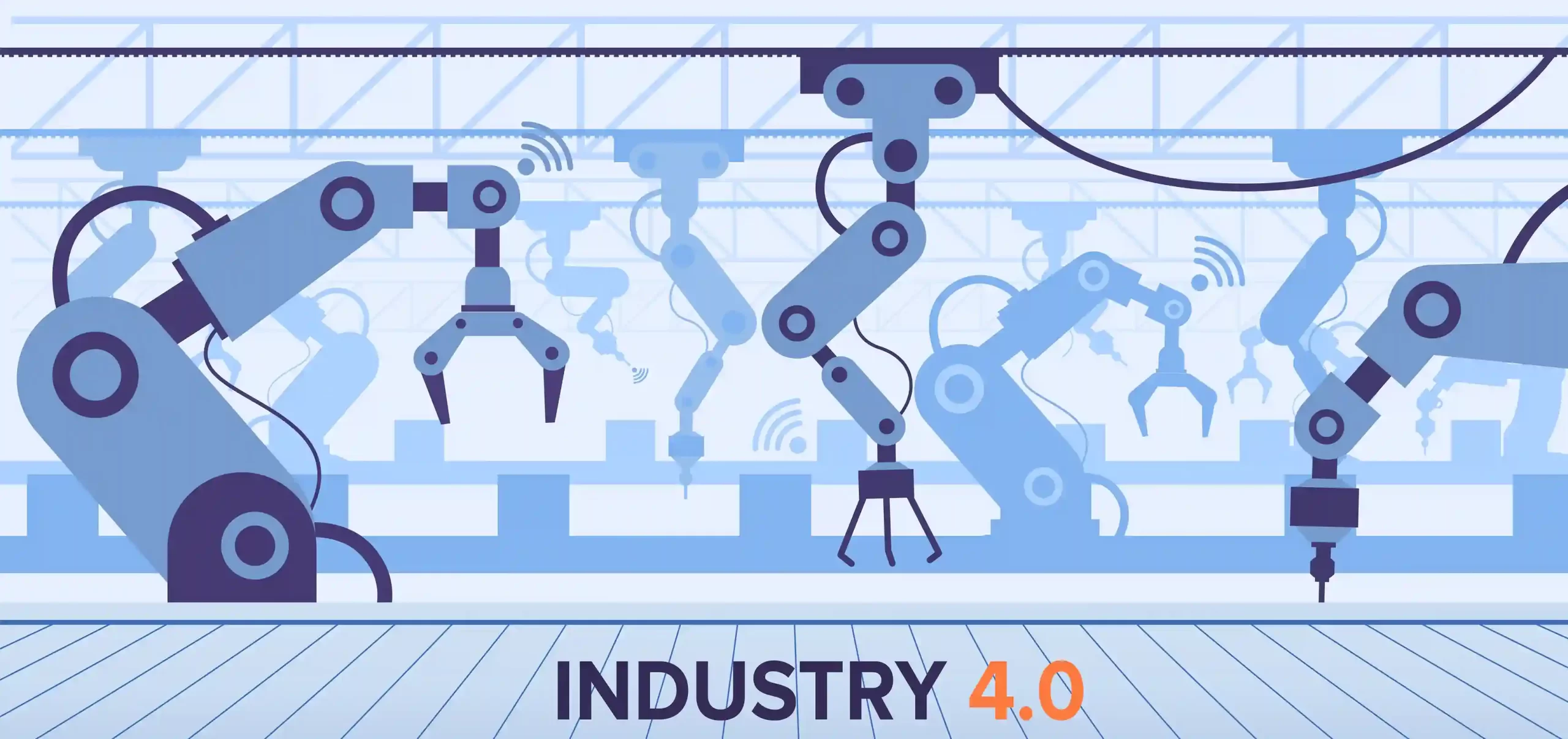Next-Gen Manufacturing CRM
Author: Inza Khan
24 July, 2024
In 2024, Customer Relationship Management (CRM) systems have become an integral part of manufacturing operations. As we look toward the future, several exciting trends are emerging that promise to revolutionize how manufacturers interact with their customers, manage their operations, and drive growth. This blog explores the 7 key trends shaping the future of Manufacturing CRM systems.

1- Artificial Intelligence and Machine Learning Integration
Artificial Intelligence (AI) and Machine Learning (ML) are set to transform Manufacturing CRM systems in unprecedented ways:
- Predictive Analytics: AI-powered CRM systems will offer more accurate forecasting of customer demand, helping manufacturers optimize their production schedules and inventory management. For example, by analyzing historical sales data, seasonal trends, and external factors like economic indicators, these systems can predict future order volumes with remarkable accuracy. This allows manufacturers to adjust their production capacity proactively, reducing waste and improving efficiency.
- Intelligent Automation: Routine tasks such as data entry, lead scoring, and basic customer inquiries will be increasingly automated, allowing sales teams to focus on high-value activities. AI can automatically update customer records, qualify leads based on complex criteria, and even handle initial customer interactions through chatbots. This not only saves time but also reduces human error and ensures consistent customer experiences.
- Personalized Customer Experiences: ML algorithms will analyze customer data to provide hyper-personalized product recommendations and marketing messages. By considering factors such as past purchases, browsing history, and even social media activity, CRM systems can tailor product suggestions and communication strategies to each individual customer. This level of personalization can significantly increase conversion rates and customer loyalty.
- Anomaly Detection: AI algorithms can continuously monitor manufacturing processes and customer interactions to identify unusual patterns or deviations from the norm. This could help in early detection of quality issues, potential customer churn, or emerging market trends.
2- Internet of Things (IoT) Connectivity
The integration of IoT devices with CRM systems will create a more connected manufacturing ecosystem:
- Real-time Equipment Monitoring: IoT sensors on manufacturing equipment will feed data directly into CRM systems, enabling proactive maintenance and reducing downtime. For instance, if a machine shows signs of wear or unusual behavior, the CRM system can automatically schedule maintenance and notify the customer of any potential delays, improving transparency and customer satisfaction.
- Supply Chain Visibility: Connected devices throughout the supply chain will provide real-time updates on inventory levels, shipment status, and potential disruptions. This enhanced visibility allows manufacturers to keep customers informed about their orders and quickly address any issues that arise. It also enables more accurate delivery estimates and efficient resource allocation.
- Product Usage Insights: IoT-enabled products will send usage data back to manufacturers, informing product development and customer service strategies. This data can reveal how customers are actually using products, which features are most popular, and where improvements could be made. It also allows for predictive maintenance on customer-owned equipment, potentially preventing breakdowns before they occur.
- Environmental Monitoring: IoT sensors can track environmental conditions in manufacturing facilities and throughout the supply chain. This data, when integrated with the CRM, can help ensure product quality and compliance with regulations, which is particularly important in industries like pharmaceuticals or food production.
3- Advanced Analytics and Business Intelligence
Next-generation Manufacturing CRM systems will offer more sophisticated analytics capabilities:
- 360-Degree Customer View: By integrating data from multiple touchpoints, CRM systems will provide a comprehensive view of each customer’s journey and preferences. This includes not just purchase history, but also interactions with customer service, responses to marketing campaigns, product usage data, and even social media sentiment. This holistic view enables more informed decision-making and personalized customer strategies.
- Prescriptive Analytics: Beyond just predicting outcomes, CRM systems will suggest specific actions to optimize customer relationships and business processes. For example, the system might recommend the best time to contact a particular customer, suggest cross-selling opportunities based on complementary product purchases, or advise on optimal pricing strategies for different customer segments.
- Visual Data Exploration: Interactive dashboards and data visualization tools will make it easier for non-technical users to derive insights from complex datasets. These tools might include heat maps showing customer concentrations, interactive graphs of sales trends, or AI-powered natural language interfaces that allow users to ask questions about the data in plain English.
- Cohort Analysis: Advanced CRM analytics will enable manufacturers to group customers into cohorts based on shared characteristics or behaviors. This allows for more targeted marketing strategies and product development initiatives. For instance, a manufacturer might identify a cohort of early adopters who consistently purchase new product lines and tailor their marketing approach accordingly.
4- Mobile-First and Cloud-Native Solutions
The future of Manufacturing CRM is increasingly mobile and cloud-based:
- Mobile CRM Apps: Sales teams and field technicians will have full CRM functionality on their mobile devices, enabling real-time updates and customer interactions from anywhere. This might include the ability to access customer histories, update orders, or even generate quotes while on-site with a customer. Augmented reality features could allow field technicians to access repair manuals or schematics hands-free while working on equipment.
- Cloud Scalability: Cloud-native CRM solutions will offer greater flexibility, allowing manufacturers to easily scale their systems up or down based on demand. This is particularly beneficial for manufacturers dealing with seasonal fluctuations or rapid growth. Cloud solutions also ensure that all users have access to the latest features and security updates without the need for manual installations.
- Cross-Platform Integration: Cloud-based CRMs will seamlessly integrate with other cloud services, creating a more connected technology ecosystem. This might include integration with ERP systems, marketing automation platforms, or even third-party data providers. Such integrations can automate workflows across different business functions and provide a more comprehensive view of operations.
- Edge Computing: For applications requiring low latency or operations in areas with limited connectivity, edge computing capabilities will complement cloud-based CRM systems. This allows for local processing of critical data while still maintaining synchronization with the central cloud system when connectivity is available.
5- Enhanced Customer Self-Service Portals
Manufacturers will empower their customers with more robust self-service options:
- AI-Powered Chatbots: Advanced chatbots will handle complex customer inquiries, providing instant support and freeing up human agents for high-priority issues. These chatbots will be able to understand context, remember previous interactions, and even detect customer emotions to provide more empathetic responses. They might also be able to process and explain technical documentation or troubleshoot common product issues.
- Customizable Dashboards: Customers will have access to personalized portals where they can track orders, manage accounts, and access product information. These dashboards might include real-time production updates, predictive delivery dates, and historical data on their relationship with the manufacturer. Customers could also set up custom alerts for events like low inventory levels or upcoming maintenance needs.
- Virtual and Augmented Reality Support: AR and VR technologies will be integrated into self-service portals, offering interactive product demonstrations and maintenance guides. For example, a customer could use AR on their smartphone to visualize how a new piece of equipment would fit into their existing production line. VR could be used for virtual training sessions on complex machinery, reducing the need for on-site visits.
- Predictive Maintenance Scheduling: Self-service portals will allow customers to view predictive maintenance schedules for their equipment, based on usage data and AI analysis. Customers could then schedule maintenance at convenient times, reducing unexpected downtime and extending equipment life.
6- Blockchain for Enhanced Security and Transparency
Blockchain technology will play a growing role in Manufacturing CRM systems:
- Secure Data Sharing: Blockchain will enable secure sharing of sensitive customer and transaction data across the supply chain. This is particularly important in industries with strict regulatory requirements or where intellectual property protection is crucial. Blockchain can ensure that data access is logged and that only authorized parties can view specific information.
- Smart Contracts: Automated, blockchain-based contracts will streamline order processing and ensure all parties meet their obligations. These contracts could automatically trigger payments when certain conditions are met, such as successful delivery confirmation or quality assurance checks. This reduces administrative overhead and minimizes disputes.
- Improved Traceability: Blockchain will provide an immutable record of product journeys, enhancing quality control and recall management. In the event of a product issue, manufacturers can quickly trace the affected items back to their origin, identifying the source of the problem and limiting the scope of recalls. This traceability also supports sustainability initiatives by providing transparency into sourcing practices.
- Digital Twin Integration: Blockchain can be used to securely store and manage the data associated with digital twins of physical products. This allows for a complete, tamper-proof history of a product from design through manufacturing, delivery, and ongoing usage.
7- Social CRM and Sentiment Analysis
Manufacturing CRM systems will become more attuned to social media and customer sentiment:
- Social Listening: CRM systems will monitor social media channels for mentions of the company or products, allowing for rapid response to customer feedback. This goes beyond just tracking @mentions, to include advanced natural language processing that can identify discussions about the company or its products even when not explicitly named. This allows manufacturers to engage in conversations, address concerns, and capitalize on positive sentiment in real-time.
- Sentiment Analysis: Advanced algorithms will analyze customer communications across channels to gauge overall sentiment and identify potential issues early. This analysis can track sentiment trends over time, correlating them with specific events, product launches, or marketing campaigns. It can also help prioritize customer service responses, flagging highly negative sentiments for immediate attention.
- Influencer Management: CRM systems will help identify and manage relationships with key industry influencers and thought leaders. This includes tracking interactions with influencers, measuring the impact of influencer collaborations, and suggesting potential new influencer partnerships based on audience overlap and engagement metrics.
- Competitive Intelligence: Social CRM features will extend to monitoring competitors’ social media presence and customer interactions. This can provide valuable insights into market trends, competitive positioning, and potential areas for differentiation.
Conclusion
The future of Manufacturing CRM systems is indeed bright, with cutting-edge technologies such as AI, IoT, and blockchain poised to redefine how manufacturers engage with their customers and optimize their operations. These advancements promise to make organizations more efficient, responsive, and attuned to customer needs. As these technologies evolve, we anticipate even more groundbreaking features and capabilities that will further revolutionize the manufacturing industry.
To remain competitive in this rapidly changing market, manufacturers must be agile and open to adopting new CRM technologies. Xorbix Technologies is here to guide you through this evolution, helping you leverage emerging trends to thrive in the manufacturing sector of tomorrow.
Read more on related topics:




